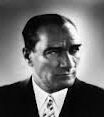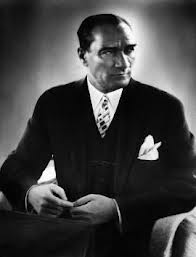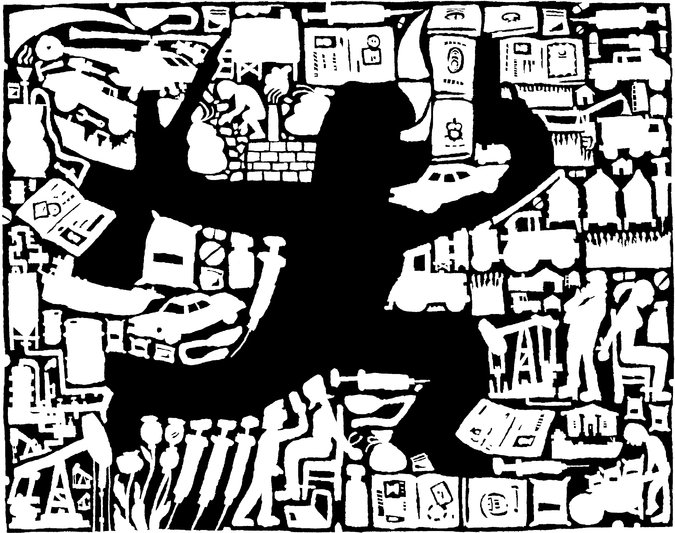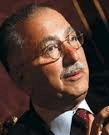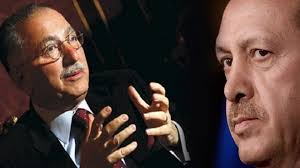|
|
|||
After the fall of Kut, I was taken in battle and became a prisoner. In October, 1918, I was released without condition, save that mine was the task of bearing proposals to my own government for a peaceful settlement and the deliverance of thousands of men from bloodshed and weary struggle. In the cabin of the launch, which took me across from Prinkipo to the Sublime Porte, I jotted down in my pocketbook the conditions which I proposed. They were as follows:
1 The opening of the Dardanelles and the Bosporus to the British
fleet.
2 Autonomy of Mesopotamia and Syria under the sovereignty of the
Sultan, and evacuation of those territories by the troops of the
Entente.
3 Frontier settlement as in the Treaty of London.
4 Immediate release of all British and Indian prisoners of war.
On arrival at Constantinople, I was taken at once to see Field Marshal Izzet Pasha, a great soldier and an honorable man. He talked with me alone and told me that he would suggest no terms; for he knew that the terms I would suggest would be honorable. But he laid emphasis on the desire of Turkey for British protection. Later on in the evening I saw Raouf Bey, minister of marine, at my house in Prinkipo, and he in turn emphasized the desire of Turkey for friendship and support from England. What must men of this type have thought when they saw our Prime Minister egging on the Greeks to the occupation of Asia Minor, a country which is not theirs and from which they have been ignominiously chased by forces inferior in number and lacking outside support?
When peace was made with Turkey, Austria at once took the cue and capitulated. That left the Germans no alternative. The war was won, civilization was saved and the barbaric prospect of German domination was done with forever. The first step in this achievement was taken when the Turkish leaders approached me and gave me authority to enter into peace negotiations. How were they rewarded for this, the first active offer to end the misery and destruction of Armageddon? They were given the Treaty of Sevres.
What I think about that treaty is that, if we had deliberately set ourselves to devise the most unjust, ungenerous and merciless policy of revenge, if we had picked for the task our clumsiest and most ruthless and discredited politicians and partisans, we could not have evolved a worse result than that which was achieved by our complacent and self-congratulatory diplomatic “experts” at the Foreign Office and in Downing Street. They seem to have set themselves to create a Turkish Alsace-Lorraine, and they have done their job well enough. As I said in the House of Commons last May, before I went to Angora to see Mustapha Kemal, it might have been thought that to take away Irak, Syria, Palestine, Arabia and the Hedjaz was enough punishment for Turkey. But no. Our “experts” took away Thrace right up to the walls of Constantinople; they took away the holy city of Adrianople; and–the crowning insult and indignity of all–they invited the Greeks to set their feet upon Turkish soil and adopt the air of conquerors of a nation which has beaten them in almost every conflict that the two peoples have ever had.
To occupy Constantinople with British Troops was a folly of a similar brand. It was bad tactics. It created, strengthened and cemented the Turkish Nationalist party and took from the puppet administration in Constantinople whatever claim it might have had to be representative of Turkish opinion. Where was the need to occupy Constantinople with British war-ships six hundred yards from the Sultan’s palace? What else could be the result of this insulting demonstration–the sight of foreign troops pacing the streets of the capital of Islam–than to send every patriotic Turk into the arms of the first strong man who was ready to take the lead in the defense of the national honor and integrity?
I went to Angora without the permission of the Foreign Office, because I took the liberty of thinking that our government, though not the British people, had broken faith with an honorable enemy. And more: I knew what the Prime Minister did not seem to know: that the greatest safeguard we could possibly have for the preservation of India and our empire in the East was Turkey’s friendship. I thought I might do something to persuade the Turkish government at Angora that things were not so hopeless as they seemed and that this heaping of insult upon indignity was not the policy of more than a bigoted few in Great Britain.
I went to Angora. And what did I find there? Not a band of brigands or irregulars, fighting under the compulsion of adventurers for a cause in which they did not believe. Not a scattered remnant of fanatics and disappointed tyrants. I found an entire nation in arms, under the leadership of single-minded patriots. I found an army whose match the world would be hard put to it to provide today, full of spirit, brilliantly led, from the generals down to the platoon officers, supplied with artillery, equipment and munitions which their own hands had made and adapted, ready to fight to the last man for the defense of their sacred soil. And after a long talk with Mustapha Kemal, I found that he was still ready to accept substantially the terms I had been asked to deliver to my government when I was set free, nearly three years before, to take the conduct and control of peace negotiations from Prinkipo to the British fleet in the Aegean Sea.
Now that the Greeks have met defeat and Mustapha Kemal has proved that Turkey will stand for her rights whatever happens, Downing Street is proposing almost the very conditions which Turkey asks for. These conditions are roughly as follows:
1 The restoration of Smyrna and all occupied territory in
Asia Minor, the Turkish government guaranteeing the safety of
life and possessions for Greeks and other foreigners in these
territories.
2 Modification of the frontier of Thrace as defined in the
last conference at Paris, in such a way as to leave
Constantinople amply defensible by the Turks themselves, or
to have its defense guaranteed, not by a combination of
Balkan interlopers, but by Great Britain and France only.
3 The international garrison for the Dardanelles to be
composed of British, French, Italian and Turkish detachments,
under the command of a disinterested neutral, say a Dane,
such occupation to be fixed for a definite period of five
years and extended if necessary.
4 Abandonment of the proposal to limit the Turkish armed
forces to forty thousand regular troops and forty-five
thousand gendarmerie and the substitution in their place of
three hundred thousand fighting troops, without counting the
gendarmerie, dividing these troops equally between the
European and Asiatic fronts.
The suggestion made at Paris last March that the Turkish army should be voluntary one, I can scarcely have the patience to discuss. The Turks are a nation of fighters. They do not desire an army modeled on our own expensive regular force, and they cannot afford it. A limited conscription suits them best; and it will suit our own interests as well since, if we allow it, the Turks will become our friends and safeguard our interests in the East.
Now suppose for a moment that we make enemies of the Turks. What does that mean? Does it mean merely the possibility of war with Turkey? I wish it did. I wish that the peril were confined to that issue. But if we back the Turk up against the wall, we shall have to fight not him alone, but the entire Mahommedan world. Let us make no mistake at all about this point. The “holy war” is a card, which the Turk has not yet played, although he knows he has it and he knows that we know he has it. And it is just because the Turk likes and admires the spirit of Great Britain and France and sees therein a reflection of his own best qualities, just because he finds in us so many of the qualities which were once, under the great sultans of two and three centuries ago, the admiration of the world, that he is willing to leave us and the French in peaceful control of our vast Mahommedan populations. When we remember that in India and Africa Great Britain alone has a population of close upon a hundred million Mahommedan subjects, that there are large numbers in the Malay Peninsula and that the Hindu population of India has made the cause of religious freedom for all the races of India its own, we can see what the peril might be if we antagonize and insult the Turk, the acknowledged head and leader of Islam, in his own holy capital.
At any moment, if Kemal likes, he can give the signal to raise the whole Mahommedan world against us. He has at his command not only the organized fanaticism of the Senussi in the deserts of Africa, not only the malcontents and agitators of Egypt and the Indian Peninsula, but the unscrupulous and powerful forces of Soviet Russia, ready to lend him any support for an enterprise which shall strike at the heart of the British and French empires. It is to Kemal’s lasting credit that he has not yet called upon this incalculable force to support him in his demands. It is to his lasting credit that he has not relied upon that support to make his demands such as would threaten the integrity and even the existence of the British Empire. Is it reasonable to expect that if we force him into a corner, if we deny him right and justice, he will hesitate to use the resources that he has at his call and face us with them in a war to the death, once the issue is declared?
The Treaty of Sevres contains an insult to Turkey in almost every paragraph. The French Chamber of Deputies never accepted it. The Italians ignored it. France and Italy have always recognized the right of the Turks to live and have laughed at the Gladstonian bombast that pretended to turn them out of Europe. It is not Kemal who is preaching the “holy war.” He is demanding justice. But there are more than sufficient fanatics among the nonconformist element in England who know nothing of the East and wish to know nothing, but are ready to send our men to the horror and savagery of modern warfare in an unjust cause. The votes of these gentry have counted for much in the recent attitude of Mr. Lloyd George and his supporters. Their influence helped him along the road of intrigue with Greece, an intrigue which has almost wholly cost us our prestige. There is not a Turk who does not believe that British money and guidance were behind the invasion of Asia Minor by the rabble of King Constantine.
There is the “holy war” which has been opened, not by the Turks or by Islam, but by the false champions of Christianity. To think that for so many generations great Englishmen in India and all over the Near and Far East have labored to keep the name of Britain fair and unstained, by insisting that the religious feelings of subject populations should be respected, and that now a British government should claim to take away the very center and focus of Mahommedanism and hand it over to the domination of an alien race and an alien creed1 What an advertisement for British justice and British policy!
At this very moment there is on foot a great Mahommedan movement in India and Mesopotamia directed against British rule. That movement still lacks leadership, and we can deal with it by firmness and justice. But I served for twenty-one years amongst the Mahommedans of northern India and the Sudan, under that great administrator, Lord Kitchener, and I have never known a time when the peril of religious war was more grave and fraught with more dire consequences. In Turkey they speak openly of this movement against Great Britain and of the support it will have from Soviet Russia and Germany when occasion offers. There are plenty of Russians in Angora today and there is plenty of Russian gold ready for distribution. But the Turks dislike and distrust the Bolshevist movement and are themselves not anxious to engineer insurrection against the British in the East. It is only if forced too far that they will make use of the last, the greatest and in my opinion the one indubitably successful means of coercion. With Turkey leading the Mahommedan world in an organized rebellion against British rule, there would be, as I see it, no hope for the maintenance of the security of the empire.
I wonder if the British government knows anything of the quality of Kemal’s army. The talk of French or German officers having led it against the Greeks is all nonsense. The Nationalist Turks want no foreign interference. Again and again they have said to me: “We are not the old Turks. We stand upon our own feet. We desire to see a Turkish nation composed of Christians as well as Moslems–but it must be a united nation. We want no foreign officers in our army, no foreign directors of our customs and finance. We recognize our foreign debts and will pay them. We look to the support of the great nations of the West in the development of our national existence. We are ready and anxious for foreign trade. But we are an independent nation and will not live upon foreign sufferance or permission.”
They have given enough proof of their determination in the past few years. I cannot conceive how any statesman, after seeing what Turkey has done to organize itself and maintain its freedom against colossal odds, can deny it the right to independence. These are not the days of Gladstone. These are new days. The World will not uproot the Turk from Europe or Asia Minor by accusing him of atrocities, especially when all mention of atrocities committed against him is carefully suppressed. The world will not destroy the Turk in Europe until it has killed the last man of the nation–and that man, when he dies, will die fighting.
We hear a great deal about the hidden intrigues of other European nations against the British Empire. I suppose all nations intrigue at times. But I must qualify that statement: it is the diplomatists and the politicians who cannot be trusted not to intrigue. They are always at it. But I do not believe that in this matter of the Mahommedan menace there is, or could be, any difference of opinion between Great Britain, France and Italy. On broad principles, in this and other matters, our union is as close as ever it was during the great war. I will not pretend that the reason for this community of policy is entirely altruistic. On the contrary, their own interest impels France and Italy to join hands with us in any safe and just policy designed to protect our empire of Mahommedan subject peoples. The French and the Italians will be the first to feel within their own colonial borders the repercussion of revolt against the British Empire by the Mahommedan subjects. It is for this reason, and because they have already seen the wisdom of the course we shall have to take in the end, that they have refused to support Mr. Lloyd George’s pro-Greek policy and have ceased empire-building in the Near East. If the British government proposes to force Turkey into the toleration of alien military and civil authority in Asia Minor, we shall be left to fight the issue alone. And Mr. Lloyd George could not have gone to the House of Commons and asked for a hundred millions or so and permission to raise five hundred and fifty thousand men for the support of the Greeks in a new offensive in Asia Minor. It would have ended his government sooner. If any British politician wants the situation put picturesquely, let me tell him that he can, perhaps, push the Turk out of Europe; but if he does so, he will make Turkey an Asiatic Power and turn its eyes at once to our empire in India and Egypt. We must realize that Turkey watches closely every phase of the present situation and is quite capable of using it to the best advantage. And I would venture to say that whatever anti-British feeling there is in Turkey has been deliberately fomented, not by foreign agitators so much as by British incapables.
There are certain matters, as I have explained, in which Turkey looks for help from us and from other western Powers. Turkey wants our moral support and wants us to have more interest in Turkish trade, which up to now has been conducted to the profit of the Greek under the shadow of British prestige. I do not pretend that the Turk is very fond of the Bulgar or the Serb or the Rumanian. I am sure that he has no love for the Russian and especially the Bolshevik. But there is one nation he hates, and that is the Greek. From time immemorial Greeks have assisted in the conduct of Turkish affairs, but always as subordinates. If one went close enough into the matter, it would be found that the Greeks themselves had little to complain of in the opportunities that were given them, under the Turkish Crescent, for personal aggrandizement in the commercial and even in the political sphere. But they have always been subordinate, and their presence in Asia Minor was tolerated only so long as they did not interfere with the rule of the country. The same applies to the Armenians. It is this which has fired the blood of every Turkish peasant to revolt, when he sees the Greeks come marching under arms as the conquerors of his country, the usurpers of his native soil. Should we like it, if those whom we had made our servants for centuries were forced upon us as conquerors by other nations for whom we had every respect and with whom we desired to be friends?
At this stage, when after nearly three years of muddle, the British government is being forced back to the position it should have taken at the armistice, the natural liking and trust of the Turks for the British people is still so strong that the situation can be saved. In this matter I would almost say that our luck is undeserved, if I did not feel that it is not our politicians, but our national character, which has earned the appreciation of the Turk.
I remember now, as if it were yesterday, what Raouf Bey said to me at Prinkipo, the day before I left captivity to bear the terms of Turkish capitulation to the British government. He pointed out that Britain must not try to force the Dardanelles, for that would cause chaos in Constantinople. “Turkey only wants to be friends with the British,” he said. “The whole thing must be a fait accompli before it is talked about. If we want help, we will call on the British and open the Dardanelles. Leave us alone till then. Treat us like gentlemen, and we will be loyal.”
British troops and Anzacs alike will remember that the Turk fought like a gentleman at the Dardanelles. It was not with the approval of these troops that the British government struck at Turkish honor when the Turk laid down his arms. I reached the British fleet, after passing through Smyrna amid cheers and acclamation, on October 20, 1918, and remained as the guest of Admiral Seymour. The Turkish delegates arrived on October 26, were quartered on the Agamemnon and went into conference on the following day. They were Raouf Bey, minister of marine, Saad-ullah, a colonel of their general staff from Aleppo, and Reshad Hikmet Bey. Tewfik Bey, of the Turkish navy, who had been my navel aide-de-camp at Constantinople, went with them.
I cannot say what happened at this conference, for I was not present. But when I got back to England, I wrote, on November 15, to Mr. Montagu, secretary of state for India, pointing out that the pro-German Turks were out of power and that the race of honest Turkish peasants, who had never wished to enter the field against Great Britain, should not be punished for the crimes committed by the Committee of Union and Progress and its bloodthirsty leaders, Enver and Talaat. I added the following statement:
“It should be borne in mind that Izzet Pasha, the field marshal, grand vizir and minister of war, has always been friendly with England. In the interview in which he gave me my liberty, he asked if I would help Turkey and said that he came of a family that had always respected England and remembered the Crimean War and the policy of Lord Beaconsfield. He said that he was ready to open the Dardanelles and the Bosporus and to give autonomy to Mesopotamia and Syria, but under the sovereignty of the Sultan, adding that we could take what guarantees we like. All that Turkey wanted, he said, was the protection of England. He thought it was better for England to have Turkey on her road to the East, a faithful and obedient ally, than some Power which eventually would become a thorn in our side. ‘But,’ he continued, ‘we will not accept dishonorable terms; we are not Bulgarians. We have ideas of honor. And rather than accept dishonorable terms, we will put our backs to the wall and fight. You know what the Turks can do when driven to it, for you have fought against them. Do not drive us out of Constantinople or Turkey in Europe, where we have been settled for centuries, for this it is impossible for us to accept.’
“Raouf Bey, minister of marine, told me that he was also ready to make Constantinople a free port, and with that commercial advantage, with access to the Black Sea and the great strategic advantage of the Dardanelles, Gallipoli and the Bosporus in our hands, we have all Turkey at our feet … I should certainly not occupy Mesopotamia or Syria, where we would only lock up troops for no purpose. If it is considered desirable by the government to hold a portion of Mesopotamia, then I should retain the province of Basrah, which might be made a free port; but, having the Persian Gulf and the Indian Ocean, I personally see no great necessity to hold Basrah … As regards Armenia, I should install a British regiment to see that people were not oppressed. I know well the horrors that have been perpetrated on the Armenian people, but it must be remembered that the Armenian question has been to Turkey what the Irish question has been to England. The Armenians, much as I sympathize with their wrongs, have invariably intrigued against the Turks, with the Russians and with the English, on every possible occasion.”
These words I addressed to Mr. Montagu, not only as being a member of the British government and at that time a personal friend of Mr. Lloyd George, but also having, by virtue of his office, a particular interest in the maintenance of a secure road between Great Britain and India.
What I said then about Mesopotamia, almost the entire press, with the exception of the government organs, is saying today. The man in the street is also saying it, but in stronger language. To gratify the whims of a few political “experts” and to protect the selfish interests of wealthy oil speculators, we are bleeding the British taxpayer white for the up-keep of a needless army in a barren desert, which will never bloom like the rose, however much we delude ourselves into thinking that it will. The Turk kept Mesopotamia quiet with a tithe of the troops that we employ. He could do so again.
It is the same in Syria. Both we and the French, if we unite on policy, can find a means of restoring Turkish control in Syria, without injuring either the Arabs or our own interests.
And finally, we must make up our minds to march side by side with the French in this Turkish affair. A lot of bad feeling between the two nations has been artificially stimulated by interested parties. There is no need for bad feeling at all. Our aims and objects are identical, and with them there coincide the objects of Italy and the United States. Even today foreign trade is being carried on extensively between the Nationalist Turks and French, Italian and American merchants, who have missions and agencies at Adana, the capital of Cilicia–and it will be remembered that there was a graver incident between French troops and Turkish irregulars in this district than anything that has occurred to us–and in the growing port of Mersina and at Konia.
While the Greeks were in Smyrna, the Turks from the interior blockaded and boycotted the place. Even if it had not been burned, the Turks would never have allowed their trade to go there while the Greeks were on the spot. And the Greeks of Smyrna will go back again when the place is rebuilt and under Turkish rule, as they would go back anywhere where there is a profit to be made.
British trade with Turkey is now represented by a very few merchants, who are known personally to their Turkish neighbors and are not held responsible for British policy. There are tales of persecution of British traders by the Turks. These merchants will tell you that there is no truth in such tales. And if the British change their policy and extend the hand of friendship to Turkey, their traders will be welcomed with open arms. England and France must, in common necessity, unite on the Near East question and give back this element of self-respect and independence of which England has sought to deprive Turkey, but which the valor of Turkish soldiery has maintained in spite of the British government. Only so can we hope to avert the menace of a “holy war” and keep the green flag of the Prophet from being unfurled against Christians in every corner of the East.
Asia, Vol. XXII, Number 12 (December, 1922): 949-953.
By Major-General Sir Charles Townshend







